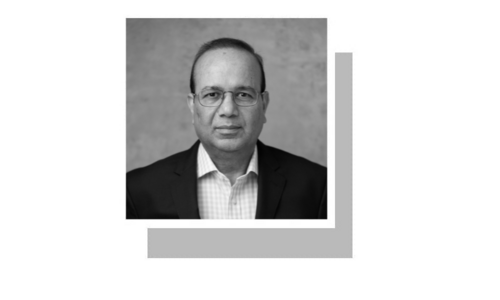KARACHI: Burdens on the common citizenry have increased markedly in the first 100 days of the new government as it moves to address the massive economic imbalances it inherited upon coming to power.
The main drivers of the price surge already eating away at the purchasing power of common people are the depreciation of the rupee and the large hike in gas tariffs.
Rupee in interbank market and open market lost its strength by eight per cent and 10.4pc.
Take a look: Atatürk & U-turn
Headline inflation, measured by the Consumer Price Index (CPI) touched 6.8 per cent in October, up from 3.8pc for the same month last year, and up from 5.1pc in the preceding month of September.
Data from the State Bank’s inflation monitor shows that the largest impact has come on non-food prices, most likely driven by the gas price increase since fuel carries a large weight in the CPI basket. The government argues that the bulk of the impact of the inflation has been felt by higher segments of society, though the State Bank data shows this to be the case in all years, not just this one.
While keeping diesel rate at Rs106.57 per litre in September and October, the government had pushed up its price to Rs112.94 from Nov 1, which is the same rate prevailing on Aug 1.
One of the major increases came in CNG rates, crossing over Rs100 for the first time in the country’s history. Now CNG costs Rs103-104 versus Rs81.70 per kg due to 40 per cent surge in gas prices to Rs980 per mmBtu.
A large number of manufacturers of chappati, nan, sheermal, taftan and kulcha raised prices ahead of receiving inflated gas bills. While some hotel owners either reduced the weight of various varieties of bread (roti) or raised the rates of various food dishes to cover up rising fuel cost.
The price of chappati and nan rose by Rs2, while sheermal and taftan became dearer by Rs5 to Rs35 in various areas followed by price hike in kulcha rate by Rs2.
Flour millers also pushed up the 10kg bag rate by Rs20 following jump in wheat price in the open market.
Association of Builders and Developers (ABAD) Chairman Mohammad Hassan Bakhshi said the price of 50kg cement bag saw Rs30 jump followed by five to six per cent rise in locally produced tiles and 13-15pc in imported ones.
He said the price of steel bar eased to Rs103,000 per tonne from Rs106,000 in August due to slow demand following ban on high-rises, which also led to closure of many re-rolling steel mills.
According to Karachi Wholesalers Grocers Association Chairman Anis Majeed the price of various pulses had gone up by Rs5-10 per kg due to rupee devaluation and rising transportation charges on account of higher diesel prices.
The prices of dairy products especially in powdered form have also been raised by various companies in August and October.
Stakeholders of chicken have played havoc with the prices. Live bird and its meat are selling at Rs240 and Rs380-420 per kg, respectively, from Rs120-130 and Rs220-250.
A wholesaler attributed hike in prices to rising one-day old chick rate and poultry feed, vaccines and medicines due to the rupee depreciation.
Farmers had suffered huge losses in the last four months due to low rates as they could not put chicks in the farm for production. The bird arrival from the farms is slow against huge demand arising out from post marriage season after Rabiul Awal, he said.
Ghee and cooking oil prices have jumped by at least Rs10 per kg/litre.
The only relief for consumers during first 100 days of this government was drop in LPG price by Rs30 per kg to Rs127 per kg, LPG Distributors’ Association chairman Irfan Khokar claimed, adding linking price relief to removal of regulatory duty on imports and cut in sales tax to 10pc from 17pc.
Soap makers also pushed up prices of their products. The one kg pack of Sufi special laundry soap is now priced at Rs180 as against Rs160 per pack.
Published in Dawn, November 27th, 2018













































